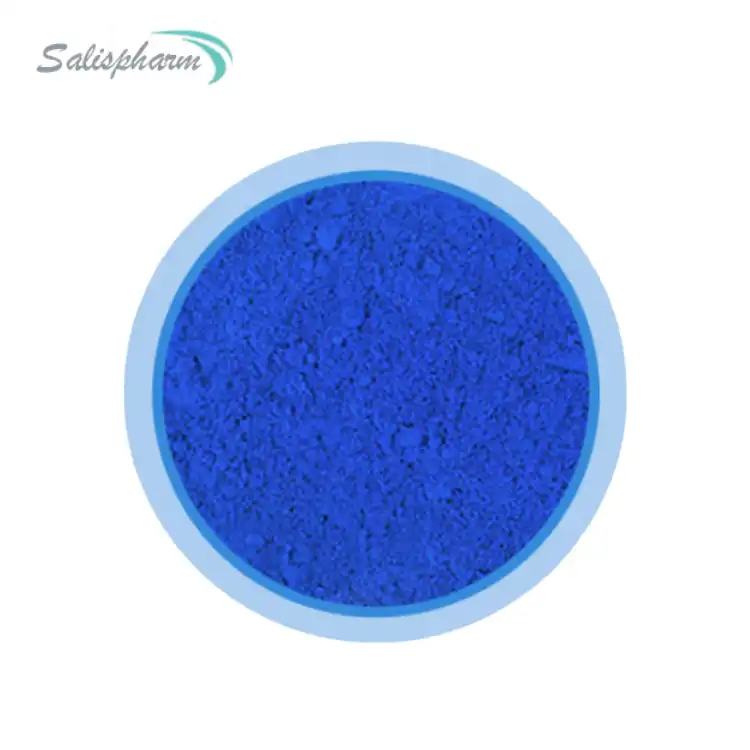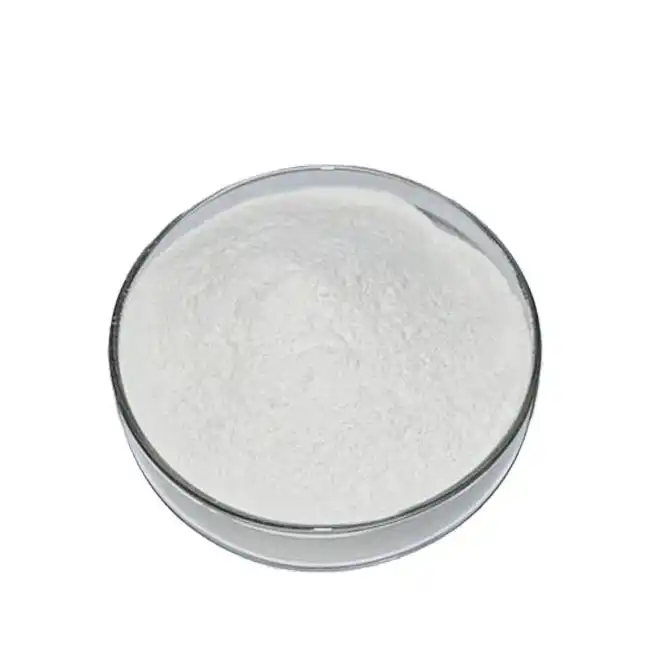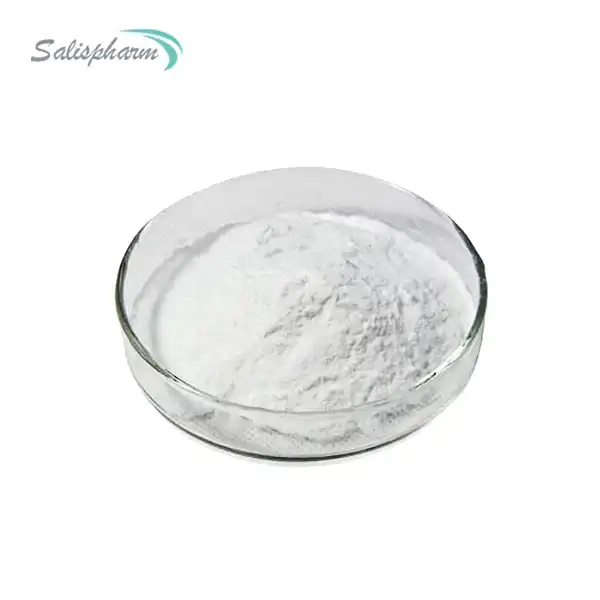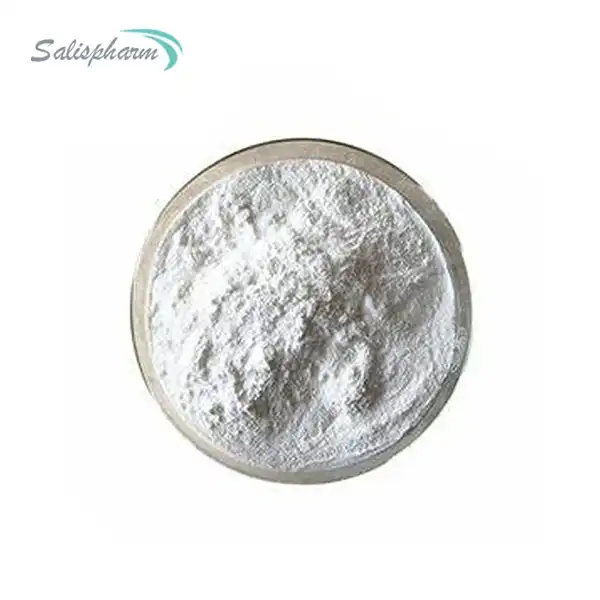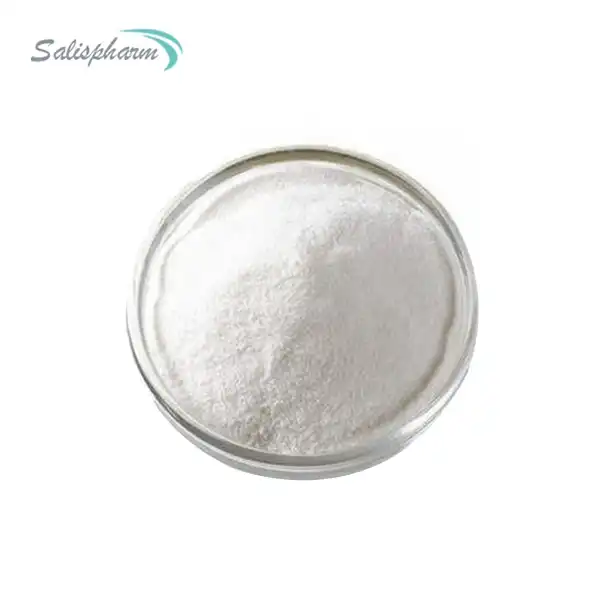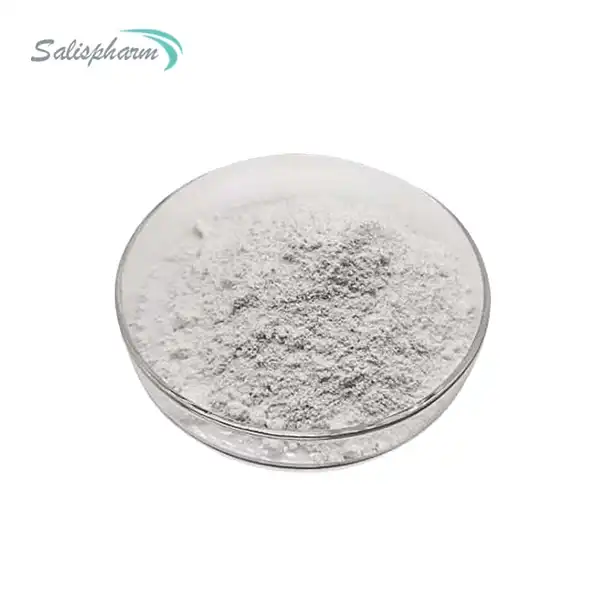Methionine powder is a versatile supplement that has gained popularity in recent years due to its numerous potential health benefits. As an essential amino acid, methionine plays a crucial role in various bodily functions, from protein synthesis to detoxification processes. This powdered form of methionine offers a convenient way for individuals to incorporate this vital nutrient into their daily routines. In this blog post, we'll explore the various applications and advantages of methionine powder, shedding light on why it has become a sought-after supplement among health enthusiasts and those looking to optimize their wellbeing.
What are the key benefits of supplementing with methionine powder?
Methionine powder supplementation offers a wide array of potential benefits that can contribute to overall health and wellbeing. As an essential amino acid, methionine is crucial for numerous bodily functions, and ensuring an adequate intake can support various aspects of your health.
One of the primary benefits of methionine powder is its role in protein synthesis. As a building block of proteins, methionine is essential for the growth and repair of tissues throughout the body. This makes it particularly valuable for athletes, bodybuilders, and individuals recovering from injuries or surgeries. By supplementing with methionine powder, you can help ensure that your body has the necessary raw materials to build and maintain muscle mass, as well as support the healing of damaged tissues.
Another significant benefit of methionine powder is its potential to support liver health. Methionine is a precursor to S-adenosylmethionine (SAM-e), a compound that plays a crucial role in liver function and detoxification processes. By providing the body with additional methionine, you may be supporting your liver's ability to neutralize and eliminate toxins, potentially reducing the risk of liver damage and promoting overall liver health.
Methionine powder may also contribute to improved cardiovascular health. This amino acid is involved in the production of cysteine, which in turn is used to produce glutathione – a powerful antioxidant that helps protect cells from oxidative stress. By supporting glutathione production, methionine supplementation may help reduce inflammation and oxidative damage in the cardiovascular system, potentially lowering the risk of heart disease and related conditions.
Furthermore, methionine powder has been associated with potential benefits for skin health. As a component of collagen and keratin, methionine plays a role in maintaining healthy skin, hair, and nails. Some studies suggest that adequate methionine intake may help improve skin elasticity and reduce the appearance of fine lines and wrinkles, making it an attractive option for those looking to support their skin health from the inside out.
Methionine powder may also have positive effects on mood and cognitive function. As a precursor to SAM-e, methionine is involved in the production of neurotransmitters like serotonin and dopamine. These brain chemicals play crucial roles in regulating mood, motivation, and cognitive processes. Some research suggests that ensuring adequate methionine intake may help support mental health and cognitive function, potentially reducing the risk of conditions like depression and age-related cognitive decline.
How does methionine powder support athletic performance and muscle growth?
Methionine powder has gained significant attention in the fitness and athletic communities due to its potential to support athletic performance and muscle growth. As an essential amino acid, methionine plays a crucial role in various physiological processes that are particularly relevant to athletes and fitness enthusiasts.
One of the primary ways methionine powder supports athletic performance is through its involvement in protein synthesis. Proteins are the building blocks of muscle tissue, and methionine is one of the nine essential amino acids that the body cannot produce on its own. By supplementing with methionine powder, athletes can ensure that their bodies have an adequate supply of this crucial amino acid to support muscle protein synthesis, especially during periods of intense training or recovery.
Methionine is also involved in the production of creatine, a compound that plays a vital role in energy metabolism within muscle cells. Creatine helps replenish adenosine triphosphate (ATP), the primary energy currency of cells, during high-intensity, short-duration activities like weightlifting or sprinting. By supporting creatine production, methionine powder may indirectly contribute to improved power output and performance during these types of exercises.
Furthermore, methionine powder may help reduce muscle damage and accelerate recovery after intense workouts. This amino acid is a precursor to cysteine, which is used to produce glutathione – one of the body's most potent antioxidants. Glutathione helps neutralize free radicals and reduce oxidative stress, which can be particularly beneficial for athletes who regularly engage in strenuous exercise. By potentially reducing muscle damage and inflammation, methionine supplementation may help athletes recover more quickly between training sessions and maintain consistent performance over time.
Methionine powder may also support muscle growth through its role in the production of growth factors. Some research suggests that methionine is involved in the synthesis of insulin-like growth factor 1 (IGF-1), a hormone that plays a crucial role in muscle growth and repair. By ensuring adequate methionine intake, athletes may be supporting their body's ability to produce and utilize these growth factors effectively, potentially leading to enhanced muscle hypertrophy over time.
What role does methionine powder play in liver health and detoxification?
Methionine powder has garnered significant attention for its potential role in supporting liver health and enhancing the body's natural detoxification processes. As an essential amino acid, methionine is involved in numerous biochemical pathways that are crucial for maintaining optimal liver function and promoting the elimination of harmful substances from the body.
One of the primary ways methionine powder supports liver health is through its role as a precursor to S-adenosylmethionine (SAM-e). SAM-e is a compound that plays a central role in methylation reactions, which are essential for various liver functions, including the production of phosphatidylcholine – a key component of cell membranes. Adequate SAM-e levels are crucial for maintaining the structural integrity of liver cells and supporting their ability to function optimally.
Furthermore, SAM-e is involved in the synthesis of glutathione, often referred to as the body's master antioxidant. Glutathione plays a critical role in neutralizing free radicals and other toxic compounds that can damage liver cells. By supporting glutathione production, methionine supplementation may help protect the liver from oxidative stress and reduce the risk of liver damage caused by various toxins and environmental pollutants.
Methionine powder also supports the liver's detoxification processes through its involvement in the production of cysteine. Cysteine is a key component of various enzymes involved in Phase II detoxification, where toxins are conjugated with other molecules to make them more water-soluble and easier to eliminate from the body. By ensuring adequate methionine intake, individuals may be supporting their liver's ability to effectively neutralize and eliminate a wide range of potentially harmful substances.
Additionally, methionine powder may help support the liver's ability to metabolize fats. The liver plays a crucial role in lipid metabolism, and methionine is involved in the production of phosphatidylcholine, which is essential for the proper transport and metabolism of fats. Some research suggests that adequate methionine intake may help prevent the accumulation of excess fat in the liver, potentially reducing the risk of conditions like non-alcoholic fatty liver disease (NAFLD).
Methionine powder may also contribute to liver health by supporting the body's natural methylation processes. Methylation is involved in numerous biochemical reactions, including the regulation of gene expression and the metabolism of various compounds. By ensuring adequate methionine intake, individuals may be supporting their body's ability to maintain proper methylation balance, which is crucial for overall liver function and health.
Furthermore, methionine powder may play a role in supporting the liver's ability to process and eliminate various medications and toxins. The liver is responsible for metabolizing a wide range of substances, including many medications and environmental toxins. By supporting the production of enzymes involved in these processes, methionine supplementation may help enhance the liver's capacity to effectively process and eliminate these compounds, potentially reducing the risk of liver damage and supporting overall health.
Lastly, methionine powder may offer benefits for individuals dealing with certain liver conditions. Some research has suggested that methionine supplementation may be beneficial for individuals with chronic liver diseases, such as cirrhosis or viral hepatitis. While more research is needed in this area, these findings suggest that methionine powder could be a valuable addition to a comprehensive approach to liver health and disease management.
In conclusion, methionine powder offers a wide range of potential benefits for overall health, athletic performance, and liver function. From supporting protein synthesis and muscle growth to enhancing detoxification processes and protecting liver cells, this versatile amino acid supplement has much to offer. As with any supplement, it's essential to consult with a healthcare professional before adding methionine powder to your regimen, especially if you have any pre-existing health conditions or are taking medications. By understanding the various roles and potential benefits of methionine powder, you can make informed decisions about incorporating this supplement into your health and wellness routine.
If you are also interested in this product and want to know more product details, or want to know about other related products, please feel free to contact iceyqiang@aliyun.com.
References:
1. Brosnan, J. T., & Brosnan, M. E. (2006). The sulfur-containing amino acids: an overview. The Journal of nutrition, 136(6), 1636S-1640S.
2. Martínez, Y., Li, X., Liu, G., Bin, P., Yan, W., Más, D., ... & Yin, Y. (2017). The role of methionine on metabolism, oxidative stress, and diseases. Amino Acids, 49(12), 2091-2098.
3. Métayer, S., Seiliez, I., Collin, A., Duchêne, S., Mercier, Y., Geraert, P. A., & Tesseraud, S. (2008). Mechanisms through which sulfur amino acids control protein metabolism and oxidative status. The Journal of nutritional biochemistry, 19(4), 207-215.
4. Grimble, R. F. (2006). The effects of sulfur amino acid intake on immune function in humans. The Journal of nutrition, 136(6), 1660S-1665S.
5. Lieber, C. S. (2002). S-adenosyl-L-methionine: its role in the treatment of liver disorders. The American journal of clinical nutrition, 76(5), 1183S-1187S.
6. Mato, J. M., & Lu, S. C. (2007). Role of S-adenosyl-L-methionine in liver health and injury. Hepatology, 45(5), 1306-1312.
7. Drummond, M. J., & Rasmussen, B. B. (2008). Leucine-enriched nutrients and the regulation of mammalian target of rapamycin signalling and human skeletal muscle protein synthesis. Current opinion in clinical nutrition and metabolic care, 11(3), 222-226.
8. Bjelakovic, G., Nikolova, D., Gluud, L. L., Simonetti, R. G., & Gluud, C. (2007). Mortality in randomized trials of antioxidant supplements for primary and secondary prevention: systematic review and meta-analysis. Jama, 297(8), 842-857.
9. Lu, S. C. (2009). Regulation of glutathione synthesis. Molecular aspects of medicine, 30(1-2), 42-59.
10. Stipanuk, M. H. (2004). Sulfur amino acid metabolism: pathways for production and removal of homocysteine and cysteine. Annual review of nutrition, 24, 539-577.



